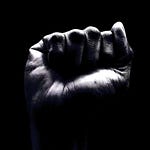Hello, Community,
Here is the second draft of my short story in progress. My aim in this draft was to deepen the character development. I also wanted to establish that my story will jump back and forth in time. If you describe a friendship as being “lifelong” in the beginning of a story then you better cover the decades, right?
If you want to take a look at the first draft then you can follow this link. Otherwise, you can just read the second draft below.
Thanks,
Sherman
In 1985, Paul and Gabriel were freshman at St. Cataldo University in Spokane.
Paul was from a small logging community near the Canadian border north of Spokane, halfway between two smaller communities that would be ghost towns in fifty years. The logging business was terminally ill so a majority of the high school students received free lunch. But Paul’s father was the town cop and his mother was the school principal—small town royalty—so their only child could afford his noontime meal. Paul was modest about it. He had a few friends who were too ashamed of their poverty to even enter the lunchroom and claim their free food. But, sometimes, Paul surreptitiously gave a dollar to a poor friend so they could publicly buy their lunch, especially on Taco Tuesday. Paul tried not to be condescending or valorous about it. He didn’t want to be the Saint of Little Milk Cartons. He just wanted to be a generous friend.
He was a baseball player—the only pitcher on his high school team that could throw a curve and the only batter that could smash home runs. There weren’t enough kids in his school to fill out a whole team so they consolidated with two other high schools. They were a terrible squad who only won six games in four years and all of those were 1-0 thrillers where Paul had pitched a shutout and hit a solo home run. He’d hoped a college scout might someday show up to watch him play. But that never happened. Maybe he could’ve played at a middling community college but he was never going to make the team at St. Cataldo, a baseball powerhouse who, over the decades, had seen twenty-two alumni play in the Major Leagues.
Paul was only small-town good.
Sometimes, at St. Cataldo, he wondered if he missed baseball more than he missed his parents. His nostalgia for his high school athletic heroics was so intense that he’d sometimes cry in the dorm shower. There was something about the hot water that released his closely-held emotions. He tried to limit his beer consumption because he’d invariably launch into drunken monologues about his pitching and hitting highlights and then suffer the morning-after embarrassment. He was lonely for the crowd—even for the five or ten townspeople who used to gather at the high school baseball field and politely clap when something good happened.
Also, Paul didn’t believe in God.
Gabriel grew up in a house with picture windows on Seattle’s Lake Washington. His parents worked for different law firms because they wanted their marriage to endure. They were devout Catholics so divorce wasn’t an option anyway, especially for lawyers who thought it would be even more sinful to use their legal skills to obtain an annulment. Gabriel was their only child, and thus suffered through the academic pressures exerted by parents who’d both escaped poverty by reading books. But they’d never expected or required him to attend church. By the time he was twelve and beginning to forcefully assert himself as an individual, he’d decided that he was going to be a reverent Catholic. He wrote a mission statement and read it aloud to his parents: “Dear Mother, Dear Father, I reject the idea of being a casual American Catholic checking in with God only on Easter and Christmas. I have therefore chosen to be a literalist. From now on, I believe in transubstantiation. Through my faith, I know that the bread and wine are absolutely the blood and flesh of Christ.”
At St. Cataldo, he was one of the twenty or thirty students who, by intense family obligation or personal devotion, attended Mass every Sunday in the university chapel on the top floor of the old administration building. Over the generations, the college’s Jesuit priests had watched the students’ faith fade and nearly vanish, partly due to church corruption and crime, and partly due to the advancing secularization of the United States. Somehow, Catholics had become an endangered species at a Catholic university. So the Jesuits were especially grateful for the students who were as dedicated as Gabriel was.
Also, Gabriel the Catholic had a lot of extra money. But his best friend, Paul, only had a few dollars more than just-enough.
They were randomly placed in dorm rooms next to each other on the southwest wing of Agnes Hall. In 1985, there were no algorithms that paired roommates so Paul was predictably matched with a kid from a Montana farming town and Gabriel was matched with a dude from San Diego.
City boy met city boy. Country boy met country boy. But friendship doesn’t work that way. Friendships don’t pay attention to the rules.
Gabriel the Catholic and Paul were strangers on that first day of college, best friends by the end of the first week, and were on their way to being lifelong friends.
If you’d asked them why their friendship seemed preordained, Gabriel would’ve said “God” and Paul would’ve said, “Luck.”
At Christmas break, after their first semester in Agnes Hall, they switched roommates. There were no hard feelings. Everybody knew it was the right thing.
Gabriel (never Gabe) had the only personal phone on the wing—a landline that was the most important technology in the dorm. There were community phones that accepted calls but you could only make outgoing calls to local numbers. So Gabriel the Catholic charged his wingmates to use his phone for any long distance calls. His parents paid the bill so it was all profit for him. One dollar for three minutes if you were calling your friends or family back home. Two dollars if you were calling your long-distance girlfriend. People in love were always willing to pay more, though Gabriel waived the fee when the call ended in a breakup. He liked to think he was a romantic. He was in a study group with a girl named Linda. They read the famous poem about the red wheelbarrow in the rain. Gabriel didn’t understand it. Nothing seemed to happen. There was no story. But Linda said, “It’s like the poem is a camera taking a picture.” Gabriel was stunned by her insight. It was the beginning of his love for her.
Gabriel the Catholic also owned the only TV on the wing. A little color thing with unpredictable reception. It was almost exclusively used to watch The David Letterman Show and Saturday Night Live. But, in January, he was watching in the morning when the Space Shuttle Challenger exploded. He was alone at first but then Paul and ten or twelve boys crowded into their room to watch. They were young and dumb but nobody was young and dumb enough to make a joke. They allowed themselves to silently, seriously, and collectively grieve. And, soon enough, a few other boys and girls from other wings arrived to watch. Gabriel barely looked at the other kids. He was transfixed by the epic disaster. He knew it was the first time in his life that he’d witnessed something historic, a tragedy that he’d never forget. He whispered The Lord’s Prayer. He thought he might cry when they showed a photograph of Christa McAuliffe, the woman who was supposed to be the first schoolteacher in space.
Then Gabriel heard sobbing. For a moment, he thought it was somebody on the television. Perhaps an astronaut’s spouse or parents. Or, most tragically, a child. But Gabriel realized that somebody was crying in his dorm room. He turned away from the TV and saw that it was Linda, his poetry study partner. Gabriel was surprised to see that she was weeping into Paul’s chest. How had Gabriel missed the beginning of that relationship? Had they been hiding it from him? How could he have missed the signs? Gabriel the Catholic saw Paul kiss the top of Linda’s head. Damn, damn, damn. Gabriel was angry but he didn’t feel that he deserved his anger. It was vanity more than anything else. He’d never declared his affection for Linda. Not to her and not to anybody else. Neither Paul nor Linda had betrayed him. And yet, Gabriel was suffering. He watched Linda wrap her arms around Paul’s waist—his skin separated from her skin only by a thin cotton shirt. Gabriel immediately recognized that his two friends had already been physically, emotionally, and spiritually intimate. It was an intimacy that would last for decades.
Also, it was the official beginning of Gabriel’s unrequited love for Linda. He felt two kinds of grief.
He turned back to the television as a reporter said, “In 1967, we lost three astronauts to a fire during a simulated launch, but this is the very first time we’ve lost astronauts during a real flight.”
Gabriel enrolled in a creative writing class during his senior year at St. Cataldo. He took it so he could sit next to Linda, who was widely recognized as the best poet. That wasn’t a huge literary accomplishment. Professional poets and novelists rarely came out of St. Cataldo. Maybe two over the years. But it was still something to be proud of. She wrote with a vulnerability that mattered.
But Gabriel, despite his hard work and editorial advice from Linda, wrote only one poem that he liked.
“In this love triangle,” he’d written, “the opposite side is barely there. It’s written in pencil and she can erase it anytime she dares.”
“That’s you,” Linda had remarked after that class. “That has to be you, right? But who’s the girl? It’s Margaret, isn’t it?”
“Yes,” he said. He lied. “It’s Margaret.”
Everybody knew the story about Margaret and Gabriel. They’d been part of a group of St. Cataldo students who’d sneaked into a huge abandoned building that had once been a mental hospital. It was said the ghosts were made of screams.
“I’m scared,” Margaret said to Gabriel as they lagged behind the others.
A few minutes later, they were making out in a small room. A few minutes after that, one of the other kids stepped around the corner and shined a flashlight on them.
He and Margaret’s clothes were in a tender disarray. Buttons were unbuttoned. Zippers were unzipped. But no real sin had been committed. Gabriel brought it up in the confessional but even the priest shrugged it off.
“Margaret is awesome,” Linda said after the poetry class.
“Yes, she is,” Gabriel said.
Eleven years later, Gabriel and Margaret bumped into each other at SeaTac Airport. They were both running late for their flights.
After hurried pleasantries and a hug, Margaret asked, “How come you never kissed me again after the first time you kissed me?”
Gabriel took a step back. He felt a heat that he couldn’t put a name to. Was it lust or embarrassment?
“I don’t know why I didn’t kiss you again,” he said to Margaret. “I just thought I should be polite.”
“Polite,” she said. “Oh, Gabriel, I’ve never been that Catholic.“
She laughed and sprinted for her gate. Gabriel missed his flight and had to take the next one three hours later.
At their twentieth college reunion in Spokane, which also happened to fall on the same day as Paul and Linda’s eighteenth wedding anniversary, Paul drank so much that he’d passed out in the driver’s seat of his Prius. Linda, fairly drunk herself, had already taken away the keys. There would be no drinking and driving.
Gabriel sat in the small backseat. Damn, he thought, a Prius is so damn narrow.
“He’s an alcoholic,” Linda said.
“What?” asked Gabriel.
“Paul,” she said. “Paul is an alcoholic. He’s already been to rehab twice.”
Gabriel was surprised by that news. And hurt. Sure, he lived in Seattle, over three hundred miles away from Paul, but they’d emailed, texted, or phoned on a weekly basis for years. Gabriel tried and failed to remember when he’d been out of contact with his best friend for twenty-eight straight days, the standard length of rehab.
“I don’t understand,” Gabriel said to Linda. “Why didn’t he tell me?”
“Because of shame like the Northern Lights burning in the dark,” she said.
Ah, thought Gabriel, she’s still a poet.
“I didn’t know it was that bad,” he said. “I’m sorry.”
“It’s not your fault,” she said. “Nobody really knows.”
Paul was the baseball coach at his old high school. Though, some years, they couldn’t field a team because there weren’t enough players, even with a squad consolidated now from four different small high schools. Some years, there were seventh- and eighth-grade players who had to suit up. Among many other traditions, it seemed baseball was also dying in the small towns.
Paul was also the science teacher, though he’d never studied science.
Linda taught English. She assigned Shakespeare and Stephen King. Emily Dickinson and Dolly Parton.
Because they were American, Paul had gained fifty pounds and Linda had gained thirty.
Gabriel was also an American but he ran five miles every day and lifted weights three days a week. His disciplined slenderness gave him a special power and charisma in any American space. It made him, as a lawyer, more closely resemble the lawyers played by beautiful actors. His fellow Public Defenders nicknamed him Grisham, after the author who wrote novels about lawyers predestined to become movies about lawyers.
But Gabriel didn’t feel powerful as he sat in that Prius with the drunk amd unconscious Paul and Sad-Eyed Linda of Clear-Cut Tree Stumps.
“I’m so lonely,” she said.
She turned around in the front seat and reached out her hand. Gabriel gently held it.
“I hate my house,” she said. “I hate where I live. I hate my job. I hate this car. Everybody in town drives a truck but we’re limping around in this arrogant piece of electric shit.”
Gabriel was silent. He assumed that anything he might say would be condescending. He wondered if there was something to do. Was there a grand geature to be made? Then he arrived at a decision and would spend the rest of his life wondering if it has been an impulsive action or if it were part of a long-held subconscious plan. He leaned forward and awkwardly kissed the inside of Linda’s elbow. He didn’t know why he chose her elbow. Maybe it was oddly more intimate than kissing her hand. What was that book they’d read in college? Set in the 19th Century? The novel that he and Linda had studied together in a literature class at St. Cataldo? The novel where the rich man makes out with the exiled woman’s hand and wrist? There was a movie adaptation, too, where that scene was played by two superstars.
Years back, Gabriel had taken a woman named Rachel to that movie on their second date. And she’d involuntarily sighed when the rich man’s lips met the exiled woman’s wrist. That sigh, so softly sensual, had greatly embarrassed Gabriel. And he instantly decided there wouldn’t be a third date with Rachel. His life was a series of second dates.
Then he snapped out of his literary and cinematic reverie and realized that his lips were still pressed against Linda’s elbow. How long had he been kissing her? Two seconds or maybe only three? Such an infinitesimal time in the history of the world. But it was still far too long. And he might’ve sighed. He wasn’t sure. Dear God, he’d revealed too much. And he was still kissing her.
Linda pulled back her hand. Her elbow. Gabriel looked at her. The word commandment echoed in his head. Then a full sentence, both as a set of words and as a criminal punishment, roared at him: Gabriel, you are covetous.
In the dark car, Linda stared at him. Studied him. In her head, a thousand nagging but unasked questions suddenly had the same answer.
Gabriel knew that she finally knew that he loved her.
“No,” she said.
Gabriel nodded his head. Linda nodded her head. They understood that nothing else would ever happen.
“Let’s get Paul awake,” he said. “And I’ll drive you both to your hotel.”
When he was ten, Paul saw a man cut his knee in half with a chainsaw. His father, the town cop, was driving the patrol car. Paul was sitting in the passenger seat and looking through the window at the same passing landscape that he’d traveled through all of his life. He looked up the hill toward Bucky’s trailer house. Bucky was the grandfather who’d been widowed thirty years earlier and was mostly ignored by his children and grandchildren. He was mean. He didn’t follow any rules, not the bureaucratic or social ones. So he was chainsawing wood to build an illegal bonfire when he lost his grip. The machine bucked in his hands. The teeth chewed into his knee. Bucky screamed in pain and fell, barely managing to toss the chainsaw away from him.
And Paul, completely by coincidence, saw it happen.
“Dad!” he yelled. “Dad, Dad, Dad, Dad!”













Share this post